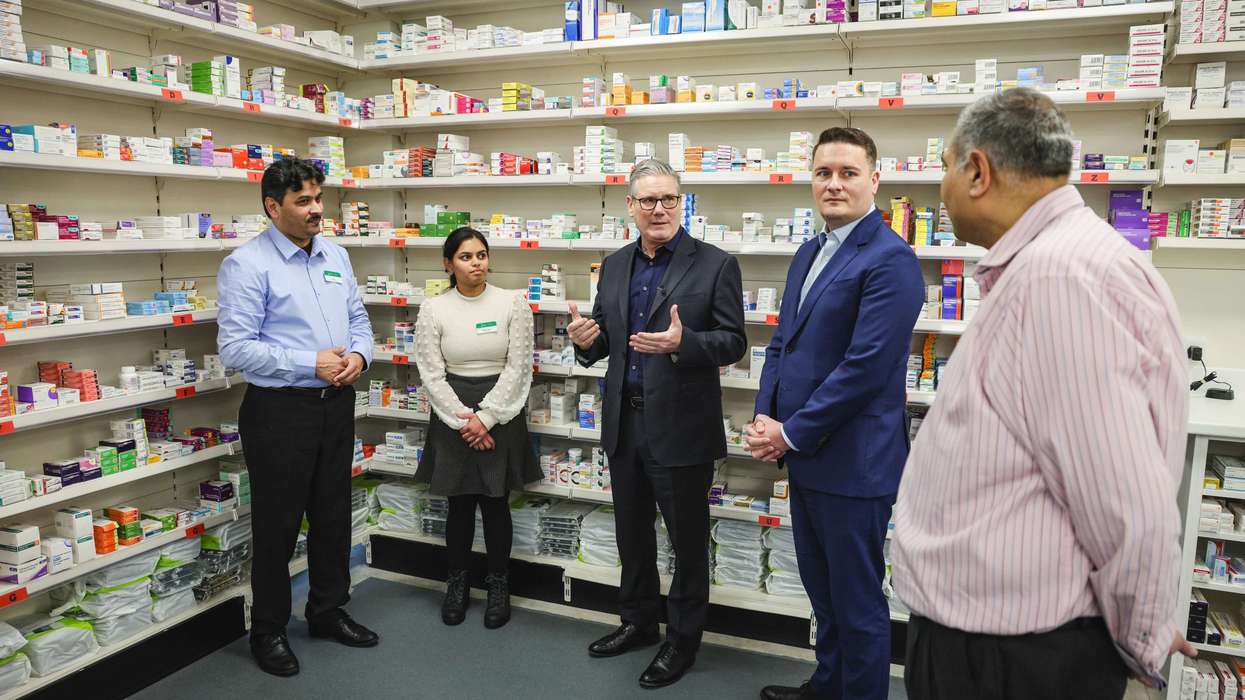By Mandeep Mudhar
A changing pharmacy landscape
Independent pharmacy is undergoing profound transformation, and navigating this change successfully will require a unified, sector-wide realignment. The healthcare landscape has been shifting, with ever increasing responsibility moving from secondary care to the community. A catalyst for this change has been the Government’s announcement of a new 10-Year Health Plan, which includes plans to expand the role of community pharmacy, positioning them at the forefront of a more clinical and preventative strategy.
At Alphega’s recent convention in Birmingham, the message from independent pharmacies was clear: we must evolve to stay resilient and adapt to greater responsibility within our communities. No longer just dispensaries, independent pharmacies are transforming into healthcare hubs. According to the Government’s plan, pharmacies will operate extended hours and be staffed by a mix of professionals - including pharmacists - who will deliver a wide range of services. This is part of a push to shift healthcare closer to home offering consultations, vaccination services, and clinical care designed to ease pressure on the NHS.
The government’s plan mandates greater integration within primary care, urging pharmacies to become service-oriented models embedded in local health systems. A central pillar of the Plan is the commitment that, from September 2026, all newly qualified pharmacists will be independent prescribers. This means they will be able to manage complex medication, prescribe where necessary, and provide care previously provided by GPs, so relieving pressure on them and reducing waiting times. Pharmacy technicians will therefore take on more of the dispensing and supervisory work. In short, pharmacies will have to step up: and we believe this community can take on the challenge.
Adapting to change: how independent pharmacies can stay ahead
From shifting patient expectations to an increasingly competitive market, independent pharmacies must evolve - boosting productivity and putting customers at the heart of every decision made. We can’t just survive; we must lead the way and so make the case for better remuneration.
Facing these challenges head-on requires a proactive approach including upskilling staff, embracing change, and making strategic investments. In essence, the community pharmacy models need redefining: the rise of digital health services, the move toward personalised care, and a growing focus on outcomes-based healthcare are transforming the landscape. This places independent pharmacy at a crossroads - demanding innovation to ensure they remain at the heart of the 10-Year Plan.
Smarter tech, stronger pharmacies
With automation, digital platforms and AI-backed solutions becoming more accessible, independent pharmacies must be forward-thinking and adopt these technologies.
Innovative breakthroughs are coming in faster than ever: take, for example, In-Pharmacy Menu Boards – sleek digital displays that showcase products and services in real time. These not only make it easier for customers to browse but also drive greater engagement and sales. Likewise, tools like Alphega’s Standard Operation Procedure (SOP) management system that helps pharmacists manage their and their teams individual SOP’s allows them to delegate responsibilities effectively thereby creating the headroom to deliver the much needed patient facing clinical services. By standardising operations and simplifying workloads, digitisation frees pharmacists to spend more quality time where it matters most: with their patients.
Other tools like the MHRA Manager or the Pharmacy First App will help enable pharmacies to improve service quality, delivering prompt, actionable alerts, or triaging patients more effectively. Ultimately, adopting these technologies is not about following industry fads. It’s about creating that much needed headroom, streamlining operations, and strengthening patient relationships. Those who embrace this shift will thrive and evolve as future-ready pharmacies.
Investing where it matters most
In the face of this rapid transformation, inward investment is crucial. Upgrading the physical space is not simply for decorative or aesthetic purposes - a well-designed and maintained environment enhances the visual appeal as well as fostering professionalism, comfort, and trust. Such improvements can significantly boost customer satisfaction and loyalty, creating a multiplier effect where patients are more likely to return to a pharmacy that offers a clean and welcoming setting.
From refreshed signage, to contemporary flooring, modular consultation rooms, and thoughtfully curated shelving layouts, improvements address the increasing demand for privacy, accessibility, and quality care. This comes as services such as blood pressure checks, vaccinations, and triage assessments within the pharmacy become routine.
One theme from the Alphega Pharmacy Convention that rings true is that even small improvements can deliver measurable returns in patient satisfaction and service uptake. Now is the time to invest boldly, modernise purposefully, and lead the way in community care. Far from operating on the margins, independent pharmacy is positioned to become an essential cornerstone of the nation’s healthcare service. With a clear focus on patient outcomes, the sector can not only weather the change but lead the transformation of primary care in the years ahead.













